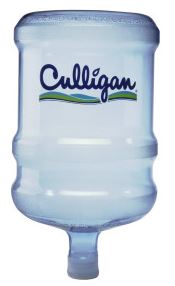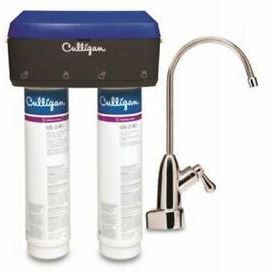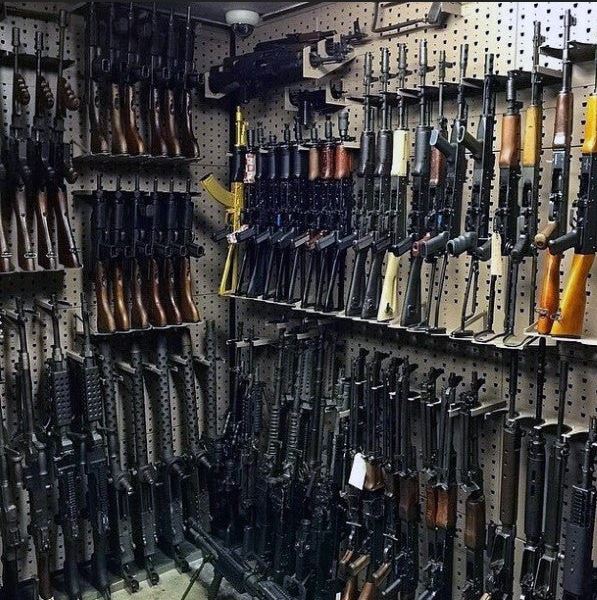Over at American Thinker, Michael Devon asks the question: “Is It Time To Start Prepping?”
As the title to this post suggests, preparing for disaster is always relevant. For many people — people with any kind of brain, that is — this would not be a time to start prepping as much as it would be a time to take stock of one’s preparations, and either add to such, refine what you need, or address any shortcomings thereof. Devon’s list is interesting:
Water sources and water filtration. You will need a minimum of 2 gallons of drinking water per soul per day — For how long, is the question. I would suggest that 2-3 weeks’ supply is pretty much all the water one can store easily (unless you have substantial property like a farm), or carry in a car. For longer than that, filtration becomes more appropriate. How good is your filtration system?


Shelter. This should be located 1–2 hours’ travel time outside urban and suburban metros — Forget it. In my case, it ain’t gonna happen. If the S genuinely does hit the F, I will either shelter in place, or drive 15 minutes to Doc Russia’s little festung (we’ve discussed it, often, and I know exactly what I’ll need to bring so as not to be a burden on him but a benefit (added security, an extra gun or two for guard duty, and shall we say “an aggressive mindset” towards protection of mine and his).
Non-perishable food. You will need 2,000 calories per soul per day with a healthy ratio of carbs, protein, and fat. — I have about two months’ supply for me and New Wife, maybe a month longer if we ration ourselves severely. After that, it’ll be time to go shopping with an AK. Of course, there are all the dried food packs (e.g. Mountain and MREs), but that’s your call: I’ve never found any of them palatable. I’d rather just have dozens of different energy bars as the last resort.
Prescription medications. Talk to your doctor and somehow finagle a three-year supply of all your non-perishable meds. Perishable meds are a more difficult issue to resolve. — Only one of my meds is perishable (glaucoma drops, which I keep in the fridge). I have about two months’ worth of my meds (New Wife has less, need to do something about that), which I can likewise extend to maybe three by skipping every third day. With sufficient warning (a day or two) Doc can write me all the Rx I need if I think I’ll need longer. Also worth considering: “general purpose” antibiotics like amoxicillin and ciproflaxin.
Personal hygiene supplies. — Covered. Three months’ worth (at least) of soap, toilet paper, wipes, toothpaste, and so on.
Ten like-minded adults willing to work hard together and to defend the shelter and its souls. — Nope, not interested in that big a group. There’d be four of us, although I’d really like it — as would Doc — if the Son&Heir could join us, suitably provisioned of course (that Eagle Scout thing, plus a deadly aim when it comes to boomsticks).
2A hardware. Never come up empty. — I believe we have that part covered.
(I have some too, if necessary. Also a few extra rounds of ammo.)
Comms. Have multiple backup and power for all comm devices. — Ugh. I need to get a couple decent Garmin walkie-talkies. Batteries, I have about a six-month supply.
Electrical systems and chargers. Solar-powered, and multiple redundancy is essential. — I need to check that my solar stuff is still in working condition. Also my car’s power inverter.
Barter stuff. Booze, tobacco products, OTC meds, instant coffee, batteries, Bic lighters. Barter food. — Good point. Note to self: empty out liquor cabinet if decamping. (The gin and single malt alone would get me whatever I want, for about six months.) Passing thought: I don’t smoke, nor do any of the folks in our little SHTF party. Worth considering getting a carton or two of Marlboros as trade goods? [/post-WWII Germany]
Metal tools. Axes, knives, saws, etc. — Covered. My SHTF bins have enough not only for me, but for Doc as well, if he needs any.
Home Depot stuff. Lumber, screws, nails, tarps, rope, duct tape, glue, gloves, concrete, etc. — Concrete? LOL. But I might need stuff like 2x4s and plywood (note: talk to Doc). All the other stuff I have in plenty.
Replacements: clothes, shoes, boots, socks, undergarments, jackets, and hats. — Covered. Included are things like serious rainwear, gloves (work and warmth), cold-weather gear and so on.
Shiny metals. — Errrr whut? I have a couple steel mirrors for signaling, but that’s about it.
Transport. Trucks, motorcycles, fuel, and spare parts. — Just enough to get me to Doc’s, but I always keep at least a half-tank of gas in the car. Doc has more at his place.
My additions and suggestions:
First aid: antibacterial stuff (ointments, disinfectants), bandages and so on. You can go nuts with preparing a list of this stuff, so I tend to go with a simple checklist of what I’ve needed to have handy over the past ten years, and adding things like coagulants and such for more serious wounds. Rule of thumb: whatever you think you’d need for OTC meds, double that number.
Cooking: some kind of camp stove or grill with an adequate fuel supply, plus metal pots and pans (like Lodge) that won’t break. Also cooking oil because butter is perishable.
Extra sugar, salt/pepper and spices. Great barter goods if nothing else. Also rice, cornmeal, pasta, cereals and similar starches.
Canned food of stuff you like to eat. Don’t bother with the junk like asparagus, cream corn and pumpkin which make you barf just at the thought; go heavy on your favorites e.g. in my case, corned beef hash, chicken and tuna. Also: evaporated milk and condensed milk.
Biltong (not jerky). Two lbs of biltong, if properly rationed out, can keep you alive for a month all by itself. (You are already making it, using Kim’s Sooper-Seekrit Recipe, aren’t you?)
Feel free to add or substitute as you wish.

What city slickers call prepping rural folks call living.
We have a year or more of everything and since everything is constantly being used it is all being constantly replenished.
Yes, you have to learn ways to store all of the stuff you stockpile.
It’s almost impossible to create a list of things one should have on hand because everyone is diff. Plus, the winter pack that will go into my vehicle next week, and the summer pack come out, may not be necessary for folks in warmer climes.
Anyway, the best prep is having your head on straight and understanding that you have to work with what you have on hand and be able to improvise on the fly.
Lastly, regarding nutrition, we stock “ingredients” rather than “foods”. With basic staples and accessories we are able to eat what we want all of the time as long as we are willing to construct it.
No “packaged” foods here. They are expensive, wasteful, and unappealing.
A couple of items to consider:
Can openers – both the military P-38 version and the old school kitchen type that grandma used. I’ve carried a P-38 on my key ring since Vietnam and it just works. You can buy a dozen off Amazon for less than a buck each.
Pint bottles of booze are great for trading. A pint of a recognized less expensive brand such as Jim Beam will buy a lot in a world that’s thirsty for booze that won’t make you go blind.
“Hard money” as the colonials used to say. Maybe that’s what the original author was speaking of. Unlike paper money which will be affected by inflation silver one ounce coEMP. from national mints such as the US eagle or Canadian maple leaf will always retain value. In a SHTF economy gold coins may not be a good choice as they will become too expensive for every day trading. Old US 90% silver coins have good value for their silver content and again come from a recognized and trusted source.
One more thing to think about. My safe has an old fashioned mechanical combination dial. No batteries to die, no electronics to be scrambled by an EMP
Good points.
– mechanical dial on safe. The electronic locks are sold to people as “emp proof”. That really depends how close an emp hits or how severe it is.
Either way – mechanical lock is better.
Also – I know this is true for me, I only know 2 of the numbers in my cell phone. Write down on paper the contacts (names and numbers) in case your phone is fried, lost, stolen etc. keep several copies.
Generator. If you have one, store at least 10 to 12 gallons of fuel. Either get 100 percent gas (no ethanol) or put in some fuel additive to deal with the ethanol of pump gas.
When using a generator. Power only what you need. A couple of lights. A heater in the winter etc. running a generator to power things you can go without wastes fuel.
Water treatment. Get filters that are portable and ones for home. And some cleaning tablets. If you use the bottles you have on hand then you have to rely on tap water or whatever and you want to clean that. If you get sick from water at the very least vomiting and shitting your brains out during shtf won’t be fun.
Keep your car in reasonable working order. I can’t stress this enough. So many people don’t do this. Make sure your gas tank is always at least half full. Make sure your car battery is good before extreme heat or extreme cold. Get the oil changed regularly. You never know when you’ll need to evacuate or bring a loved one for medical care. I know we all can’t afford every last repair sometimes (power windows acting weird or suspension clunk) but at least put in a modicum of effort keeping the car in good order
re — no can-openers?
Experiment with a can of tuna.
Topside down, figure-eight rub the raised seam on a sidewalk.
In a few seconds, the seam grinds away, then the lid can be pried open.
Depending on the severity of the SHTF event, a word about comms. Those readily-available walkie talkies are fine if you’re sweating out a hurricane or ice storm that knocks the power grid offline for a few days, and everybody’s more or less nearby.
But in a scenario where you’re “foraging” with that AK and needing to deplete ye aulde ammoe locquer, they will get you killed. They operate on 22 channels and offer no privacy at all, plus they’re extremely easy to triangulate someone’s position. Us radio geeks even do it as a practice exercise so we’re able to find on-air miscreants. It’s trivial to find the source of a radio signal when it’s being transmitted on one of the channels that everybody else will be using. Or they’ll just listen to what you’re saying and figure out what you have and where it’s stored.
Ham radio operators have access to equipment that’s more versatile in where it can transmit, including some very obscure bands that nobody really thinks of. But even still, if the messages are in the clear someone might find you and hear every word. Certain higher-end radios are capable of military-level* encryption, and that would go a long way to protect what’s being said, but could still be triangulated on a common channel. The highest level of comms uses technology invented by Hollywood actress Hedy Lamar in WW2, and it’s called spread spectrum. An encrypted spread spectrum transmission is undetectable, and undecipherable by anybody except the intended recipient. But that technology generally isn’t available to the civilian market.
* AES-256 encryption is incredibly strong, and is what your local plods are using to keep you from hearing their shenanigans. The inexpensive radios that have AES-256 capabilities have a severe and unfixable back door, that many assume was put there either at our government’s insistence, or by the Chinese company that built it. But it’s still damned secure against all but Big Brother.
As for power, solar generators are the way to go here rather than gas gennies, which need constant access to fuel as well as for the required oil changes every 100 or so hours. And they’re loud–i.e. they could give away the fact you have access to electricity. Get one as big as you can afford (they’re about a dollar a Watt-hour). Nothing less than 1000 WH, and 2000 is better. Use solar panels to charge them up and you have unlimited energy to keep food cold, keep any electronics charged, maybe power a well pump if you need one, and keep some lights on.
Fun bit from way back in the day:
When Doc Russia was fresh out of med school, I asked him what I should have in my first aid kit, which by default was a glorified box of band aids. He sent me a four page list that could outfit an ambulance. A few years later, after he’d done a stint in ER, I asked him if he’d changed his thoughts on what first aid kit should have. He’d gone the other way to super simplistic. I don’t recall it exactly, but it was down to something like an Israeli battle bandage, a SAM splint, a roll of kerlix and an ace bandage. The premise was that as an ordinary guy, all you can really do is control bleeding, stabilize orthopedic injuries and do the limited, but necessary airway protection things that are listed in the red cross and BSA first aid courses.
Those first aid courses you should absolutely have under your belt.
I know a woman who spent $20,000 on a supply of “survival food”. It was supposed to keep for 25 years. Two years later, she died. I think ghostsniper has the right idea: Only store what you actually use and rotate your stock.
“Only store what you actually use and rotate your stock.”
Yes.
Perform a LOT of analysis:
Figure out what the minmum requirements are – in all categories – to maintain life. Then add to that as budget, space, time, and resources allow.
Expand to improve quality of life as budget, space, time and resources allow.
Figure out what is equired to protect</i? your assets. Train, practice, and improve those resources and skills as budget, time and resources allow.
Water is necessary, as is food. There are other categories of e
“Only store what you actually use and rotate your stock.”
Yes.
Perform a LOT of analysis:
Figure out what the minmum requirements are – in all categories – to maintain life. Then add to that as budget, space, time, and resources allow.
Expand to improve quality of life as budget, space, time and resources allow.
Figure out what is equired to protect</i? your assets. Train, practice, and improve those resources and skills as budget, time and resources allow.
Water is absolutely necessary, as is food. There are other categories of equal importance: clothing, food preservation, food cooking, tools, additional personnel resources (you're going to have to sleep sometime, there will be stuff you don't know how to do and don't have time to learn,etc.).
Never stop learning. Never stop planning.